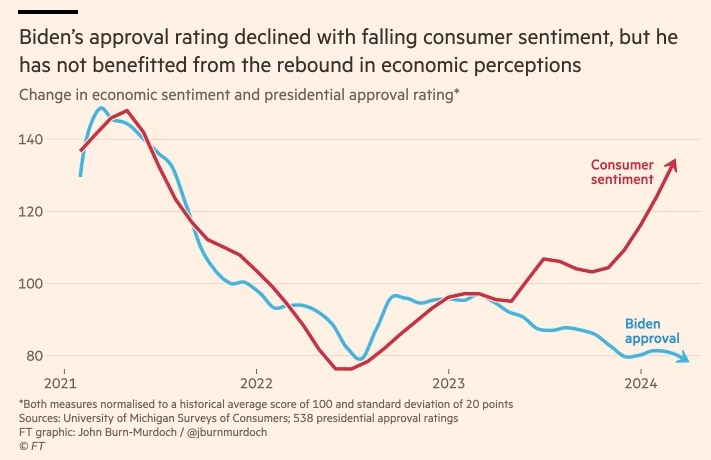International
Research Roundup: Amino Acids Might Fend Off Dementia and Alzheimer’s and More
A study by The National Institutes for Quantum Science and Technology in Japan found that a supplement with seven specific amino acids called Amino LP7 appeared to slow brain degeneration and dementia development in mice.

Research Roundup: Amino Acids Might Fend Off Dementia and Alzheimer’s and More
Every week there are numerous scientific studies published. Here’s a look at some of the more interesting ones.
A study in mice by The National Institutes for Quantum Science and Technology in Japan found that a low protein diet can accelerate brain degeneration in an Alzheimer’s mouse model. But more significantly, they found that a supplement with seven specific amino acids called Amino LP7, appeared to slow brain degeneration and dementia development in the animals. They published their research in Science Advances.
“In older individuals, low protein diets are linked to poor maintenance of brain function,” said Makoto Higuchi, one of the lead scientists of the study. “Amino acids are the building blocks of proteins. So, we wanted to understand whether supplementation with essential amino acids can protect the brains of older people from dementia, and if yes, what mechanisms would contribute to this protective effect.”
Mice on a low protein diet had accelerated brain deceleration as well as poor neuronal connectivity. But the effects were reversed after receiving Amino LP7, which suggested those seven specific amino acids might inhibit brain damage. They then studied how Amino LP7 affects different types of brain degeneration in their model. For example, untreated mice had high levels of progressive brain degeneration, but Amino LP7 suppressed neuronal death, which decreased brain degeneration, even though the mice brains still had Tau aggregates. Tau plaques are characteristic of Alzheimer’s. They also analyzed the gene-level changes caused by Amino LP7, which suggested the supplement decreased brain inflammation and prevented kynurenine an inflammation inducer, from entering the brain.
“These results suggest that essential amino acids can help maintain balance in the brain and prevent brain deterioration,” said Hideaki Sato and Yuhei Takado, both contributors to the research. “Our study is the first to report that specific amino acids can hinder the development of dementia. Although our study was performed in mice, it brings hope that amino acid intake could also modify the development of dementias in humans, including Alzheimer’s disease.”
Lab-Grown Mini Brains, ALS and Frontotemporal Dementia
Researchers at the University of Cambridge developed “mini brains” that can be used to study amyotrophic lateral sclerosis, which often overlaps with frontotemporal dementia (FTD). And for the first time, they’ve managed to grow these organoids for almost a year. The team used stem cells from patients with ALS/FTD to grow brain organoids. They are similar to parts of the human cerebral cortex in terms of embryonic and fetal developmental milestones, 3D architecture, cell-type diversity and cell-cell interactions. This has been done before, but what was new was they were able to grow them for so long; and they had the most common genetic mutation in ALS/FTD. The published research has them growing for 240 days, but an unpublished manuscript shows they have grown for 340 days.
Malaria Drug Might Help Fight COVID-19
A study published in the journal ACS Infectious Diseases evaluated the potential of atavaquone against the Wuhan wildtype strain of SARS-CoV-2 and other variants of concern. The study tested the drug in cell cultures infected with several different strains of COVID-19. The data showed a dose-dependent block in the infectivity.
Anecdotal evidence from 17 patients in Quebec and Ontario, Canada, had suggested that malarone/atovaquone might have a preventive effect. So the researchers decided to test the drugs in cell cultures to evaluate the antiviral potential. They found that it “potently inhibits the replication of SARS-CoV-2 and other variants of concern including the alpha, beta, and delta variants. Importantly, atovaquone retained its full antiviral activity in a primary human airway epithelium cell culture model.”
Two clinical trials were initiated in the U.S. in 2020 to evaluate atovaquone alone or in combination with azithromycin, but the results have still not been reported. This new study suggests that the drug may be a strong antiviral against COVID-19.
Blocking Bach1 Protein Slows Deterioration of Brain Cells in Parkinson’s
Investigators at the Medical University of South Carolina (MUSC) identified a novel role for the regulatory protein Bach1 in Parkinson’s disease. They found that Bach1 levels were higher in postmortem Parkinson’s disease-affected brains, while cells without Bach1 seemed to be protected from the damage that accumulates in Parkinson’s. Working with vTv Therapeutics, they identified a drug, HPPE, which is a potent inhibitor of Bach1. This seems to protect cells from inflammation and the buildup of toxic oxidative stress when given before or after the onset of Parkinson’s symptoms. They believe this is the first evidence that Bach1 is dysregulated in Parkinson’s disease. Many of the inflammation and toxic oxidative stress pathways are controlled by two proteins, Nrf2 and Bach1. Nrf2 turns on the expression of more than 250 genes involved in protecting cells from these stressors, while Bach1 prevents the genes from being activated. In mouse studies, HPPE appeared to alleviate symptoms of Parkinson’s and to protect neurons from destructive pathways by switching on antioxidant genes and switching off pro-inflammatory genes.
Type 1 Diabetes Might Be More Than a Single Disease
New research from the international The Environmental Determinants of Diabetes in the Young (TEDDY study added support to the theory that type 1 disease is not just one disease. The study found that the cause of autoimmune diabetes seems to vary in genetically high-risk children. The study, which was published in Diabetologica by Jeffrey Krischner, director of the Health Informatics Institute at the University of Southern Florida Health Morsani College of Medicine, compared the traits of type 1 diabetes diagnosed in children before and after the age of 6.
Type 1 diabetes is an autoimmune disease where the immune system attacks the person’s pancreatic beta cells, which are the cells that produce insulin. Four specific autoantibodies directed against beta cells are the most reliable biological indicators of early type 1 diabetes before symptoms are observed: glutamic acid decarboxylase autoantibody (GADA), insulin autoantibody (IA), insulinoma-associated-protein-2 autoantibody (IA2-2A), and zinc transporter 8 autoantibody (ZnT8A). But not all children who test positive for one or more of those antibodies end up diagnosed with type 1 diabetes. Their research found out more about the order, timing and type of autoantibodies, which can help predict which children are most likely to be diagnosed with type 1 diabetes as they get older.
“Our results underscore the importance of taking into account the age at development of multiple autoantibodies when evaluating risk factors for progression to a diabetes diagnosis,” said Krischner. “When the changing picture of autoantibody presentation is considered, it appears type 1 diabetes at an early age is a more aggressive form of the disease.”
BioSpace source:
clinical trials genetic antibodies covid-19 japan wuhan canada ontario quebec
International
The Grand Realpolitik Divergence
The diverging relationship between economic performance and political success in the U.S. highlights a shift from the past, where a strong economy positively…

The diverging relationship between economic performance and political success in the U.S. highlights a shift from the past, where a strong economy positively impacted incumbent approval ratings. President Biden’s approval ratings remain unaffected despite recent economic improvements, suggesting a decoupling of economic sentiment and political fortunes. This phenomenon, which contrasts with stable economic-political linkages in Europe, is attributed to the U.S.’s heightened partisan divide, where political allegiance increasingly dictates economic perception, challenging the traditional belief that “it’s the economy, stupid” in American politics.
Key Points:
- President Clinton’s political advisor, James Carville, highlighted the economy’s role in political success during 1992 presidential campaign with assertion, “It’s the economy, stupid.”
- Voter sentiment has traditionally linked to economic performance, affecting incumbent party success.
- Recent trends show a disconnect between the U.S. economy’s health and President Biden’s approval ratings.
- The COVID-19 pandemic and inflation crisis may have influenced this anomaly, yet the shift predates these events.
- Research indicates a decoupling of economic sentiment and presidential approval in the U.S. since Obama’s tenure.
- This phenomenon seems unique to the U.S., with European governments’ popularity still tied to economic conditions.
- S. political polarization may explain the decoupling, with partisan views influencing economic perceptions.
- Studies suggest that political biases skew individual economic assessments, impacting presidential approval.
- The current U.S. political climate suggests economic policy impact on electoral decisions is diminishing.
- Contrasts with Europe, where economic sentiment is more uniform across political lines, suggesting a more rational political-economic relationship.
Source: Financial Times
european europe pandemic covid-19Government
Wake-Up Call
Wake-Up Call
Authored by James Howard Kunstler via Kunstler.com,
“Those who organized the disaster will take advantage of the inevitable…

Authored by James Howard Kunstler via Kunstler.com,
“Those who organized the disaster will take advantage of the inevitable discontent arising from efforts to overcome it, for if there is one thing that they are skilled in, it is demagoguery.”
- Theodore Dalrymple
Can you feel it? The tension rising to the red-line? It runs clear through all of Western Civ. We are ruled by governments of fiends. But now, the sun rides higher in the sky. The sap is rising in the northern forests. The earth heaves. The buds swell and blush. Something is in the air. The animals are waking from their long winter sleep. The natives are restless.
The two traditional political divisions, liberal and conservative died with Covid. Now there are simply the sane versus the insane. The sane have had enough of being pushed around by the insane. The insane don’t register much of what reality tries to tell them. They have a body of insane ideas to comfort and protect them from the reality’s rigors. To call that body of ideas an “ideology” is way too polite.That the insane call themselves “progressive,” is a signature of their insanity.
Progress toward what better state of things? Toward a supremacy of fiends, sadists, degenerates, and morons seizing riches and power by every dishonest means possible outside the rule of law and common decency? It’s not even suitable to call them “communists.” They lack the necessary idealism for that.
They don’t expect to put their shoulders to the wheel with their fellow man. They just want to grab your stuff and then kill you so they don’t have to hear any complaints.
The insane do not believe any of the theoretical bullshit they want to force you to swallow. They don’t care about climate change. It’s just a cudgel they use to beat everyone over the head so they can steal your stuff. They don’t care about “democracy.” It’s just a line of bullshit to cover up their election-stealing. Do you suppose that sane people would keep using electronic vote-tabulating machines that were demonstrably connected to the Internet, and thus hackable, if they cared about election integrity? Of course not. They would arrange p.d.q. to junk them and use paper ballots, and only in person at polling places, with “absentee” exceptions only for people out of the country.
The insane do not care about public health. Everything that is known about the Covid-19 vaccinations tells you that they are unsafe and don’t prevent infection or transmission of a flu-like illness that might not even be what it was officially labeled as. Our public health officials in the FDA, the CDC, and in other corners of the Department of health and Human Services, lie about everything they’re responsible for. This week, the CDC (under Director Mandy Cohen) released a 148-page study on myocarditis reactions to mRNA shots. Every word on every page of the document was redacted. The CDC printed countless copies of the report with 148 utterly blank pages, and then proffered them to the news media. How is that not insane?
The insane do not care about the rule of law. The conduct of “Lawfare” is the subversion of the law by dishonest means. It is a species of racketeering. And that is why Lawfare rogues such Marc Elias, Norm Eisen, Andrew Weissmann, Mary McCord, Lisa Monaco, Matthew Graves, and Merrick Garland, should be charged under the federal RICO statutes for conspiring to deprive sane citizens of their rights and property in the many cases related to the 1/6/21 riot at the US Capitol.
It is, so far, an abiding mystery of contemporary history as to how New York Attorney General Letitia James managed to get away with prosecuting a real estate case against Donald Trump that was no more than victimless business-as-usual between a borrower and his lenders. Ms. James ran for that elected office promising to “get” Mr. Trump on something, anything. That is not how the rule of law works. Under the rule of law, first you determine that there is a crime and then look for who did the crime.
Letitia James must be insane and/or pretty stupid. The short-term gain of stealing Mr. Trump’s property under a false color-of-law and creating impediments to his election campaign, will, sooner or later, blow back at her as a matter of malicious prosecution and, plausibly, racketeering as well. (With whom did she conspire to bring this case? We shall find out.) She will eventually be disgraced publicly as her teammate Fani Willis has already been disgraced in Fulton County, Georgia. I’ll tell you something that all sane people now know but won’t talk about for fear of being crushed by the levers of Lawfare: this looks like a concerted effort by people-of-color to railroad people of non-color. If you think that is a good thing for race relations in our country, then you are insane.
Here are a bunch of other things that are insane: Re-litigating the first amendment is insane. It means what it says, and states it plainly. The open border is insane. No credible sovereign polity would allow it. It would be opposed with force, if necessary. Turning children into transsexuals on a wholesale basis is insane, and fiendishly so. Everybody knows that it is not good for the children or for our society as a whole. But fiends got to fiend, and if you try to deprive them of being fiends then you are guilty of “hate.”
The war in Ukraine is insane. We certainly didn’t ignite it in the service of “democracy.” Our pawn there, Mr. Zelensky, canceled the national elections last year. The war was arguably an effort by our CIA to deprive Russia of its market for natgas in Europe, and thus deprive Russia of a great deal of money, that is, of prosperity. The project failed. Russia overcame NATO’s proxy army and found other markets for its gas. Blowing up the Nord Stream pipelines only served to impoverish and weaken our NATO allies, who no longer have affordable gas to run their industries. The leaders of those allies were too insane to recognize that the Nord Stream op was an act-of-war against them. They were also busy destroying themselves, like the USA, with open borders. They will end up in a new medievalism, ruled by savages. You’d have to be insane to arrange that for yourself.
What’s most obviously insane in our country is that the insane party is pretending to nominate the mentally unfit White House place-keeper, “Joe Biden,” for reelection. You would think that if this party wanted to retain power, they would run a candidate who, though insane, was not also visibly senile. But the rank and file of this party are too insane to see that this dodge is not working. They are pretending with all their might that this is okay, that the growing faction of the sane don’t notice.
Sensing the growing impatience with insanity among the voters, the insane party has reached its point of terminal desperation. What will they try next? Murder? Why not? Nothing else seemed to work. They are too far gone in their insanity to understand that winter is over. We’ve entered the season of rebirth and renewal, starting with a renewed appreciation for being sane and for that indispensable ingredient that makes liberty in a free society possible: good faith. Really, the only question left is: how rough do they intend to play to prevent the return of sanity and good faith?
* * *
Support his blog by visiting Jim’s Patreon Page or Substack
International
Failed deal leaves another airline facing bankruptcy, liquidation
A planned sale of the airline brand has fallen through, and that leaves its future very much in doubt.

The business model for airlines has always been tricky and multiple major airlines around the world have needed government bailouts in order to survive. Traditionally, because airlines are essential services, that money has been there both in the United States and around the world.
In the U.S., about $54 billion was given to airlines to help them survive the covid pandemic. Had that not happened, it's very possible a major carrier would have gone bankrupt. More importantly, every carrier would have had to go into survival mode.
Related: Bad meat forces popular grocery brand into Chapter 11 bankruptcy
That would have mean laying off pilots, and other key personnel that could not be replaced quickly. Had the U.S. not ponied up and rescued its airline industry, it's likely that prices for airfare would be highly elevated and overall capacity would be greatly decreased.
It's a situation that was not unique to the U.S. The former Air Italia actually closed in 2021 but later began flying again as ITA Airways after a government bailout. In addition, Germany's Lufthansa and Sweden's SAS have received bailout packages (although those are being challenged in court).
Now, with Spirit Airlines (SAVE) facing an uncertain future and bankruptcy rumors in the U.S., another big airline has seen a major deal collapse, which puts its future in doubt.
Image source: Shutterstock/TheStreet
South African Airways faces survival risk
While many Americans may not be overly familiar with South African Airlines (SAA). it's part of the global "Star Alliance," which means it's connected to many of the world's biggest airlines.
"The Star Alliance network was formed in 1997 by Air Canada, Lufthansa, Scandinavian Airlines, Thai, and United Airlines. For the first time, these carriers began working together to offer our customers a worldwide reach and an improved travel experience," SAA shared on its website.
The Alliance has gotten much bigger since its early days.
"Since then, the Alliance has grown to 26 member airlines, including South African Airways which joined the Alliance in 2006. The Star Alliance carriers are among the most respected in the world. To become a member, an airline must offer and comply with the highest industry standards of customer service, security and technical infrastructure. The 26 member airlines operate together more than 18,500 flights a day, reaching 1,330 airports in 192 countries," SAA added.
Now, after a failed deal to sell a majority interest in SAA, the airline faces a threat to its survival.
SAA has 12-18 months left
For three years, the government of South Africa has been negotiating to sell a majority interest in SAA to Takatso Consortium. That's a controversial decision that the South African government intends to investigate.
"The Portfolio Committee on Public Enterprises has reached a decision to refer the matter of the Takatso Consortium’s purchase of a 51% stake in South African Airways (SAA) to the Special Investigating Unit (SIU) for further investigation," according to a media statement from the South African Parliament.
The failed sale puts the future of SAA in a very precarious place.
"The government estimates SAA can sustain itself financially for the next 12 to 18 months. The government has also come to the conclusion that the flag carrier will no longer receive any bailout money. SAA will have to survive on its own or find a new merger partner," World Airline News reported.
SAA's problems actually predate the covid pandemic as it was close to being liquidated in 2019 before filing for bankruptcy which allowed it to keep operating.
The pandemic, however, did hasten its breakdown and greatly contributed to its current dire situation.
Takatso Consortium pulled out because it did not believe the price being asked was a good value.
"At the end of the day it wasn't about the political pressure, the noise that you are hearing. It came down to, businesswise, as an investor, does this make sense for your stakeholders? Can you continue to drag this process along?" consortium spokesperson Thulasizwe Simelane told DW.com.
.
bankruptcy pandemic africa canada germany sweden
-

 Spread & Containment1 week ago
Spread & Containment1 week agoIFM’s Hat Trick and Reflections On Option-To-Buy M&A
-

 Uncategorized4 weeks ago
Uncategorized4 weeks agoAll Of The Elements Are In Place For An Economic Crisis Of Staggering Proportions
-

 International2 weeks ago
International2 weeks agoEyePoint poaches medical chief from Apellis; Sandoz CFO, longtime BioNTech exec to retire
-

 Uncategorized4 weeks ago
Uncategorized4 weeks agoApparel Retailer Express Moving Toward Bankruptcy
-

 International2 weeks ago
International2 weeks agoWalmart launches clever answer to Target’s new membership program
-

 Uncategorized1 month ago
Uncategorized1 month agoRFK Jr: The Wuhan Cover-Up & The Rise Of The Biowarfare-Industrial Complex
-

 Uncategorized1 month ago
Uncategorized1 month agoGOP Efforts To Shore Up Election Security In Swing States Face Challenges
-

 Uncategorized4 weeks ago
Uncategorized4 weeks agoKey Events This Week: All Eyes On Core PCE Amid Deluge Of Fed Speakers



















